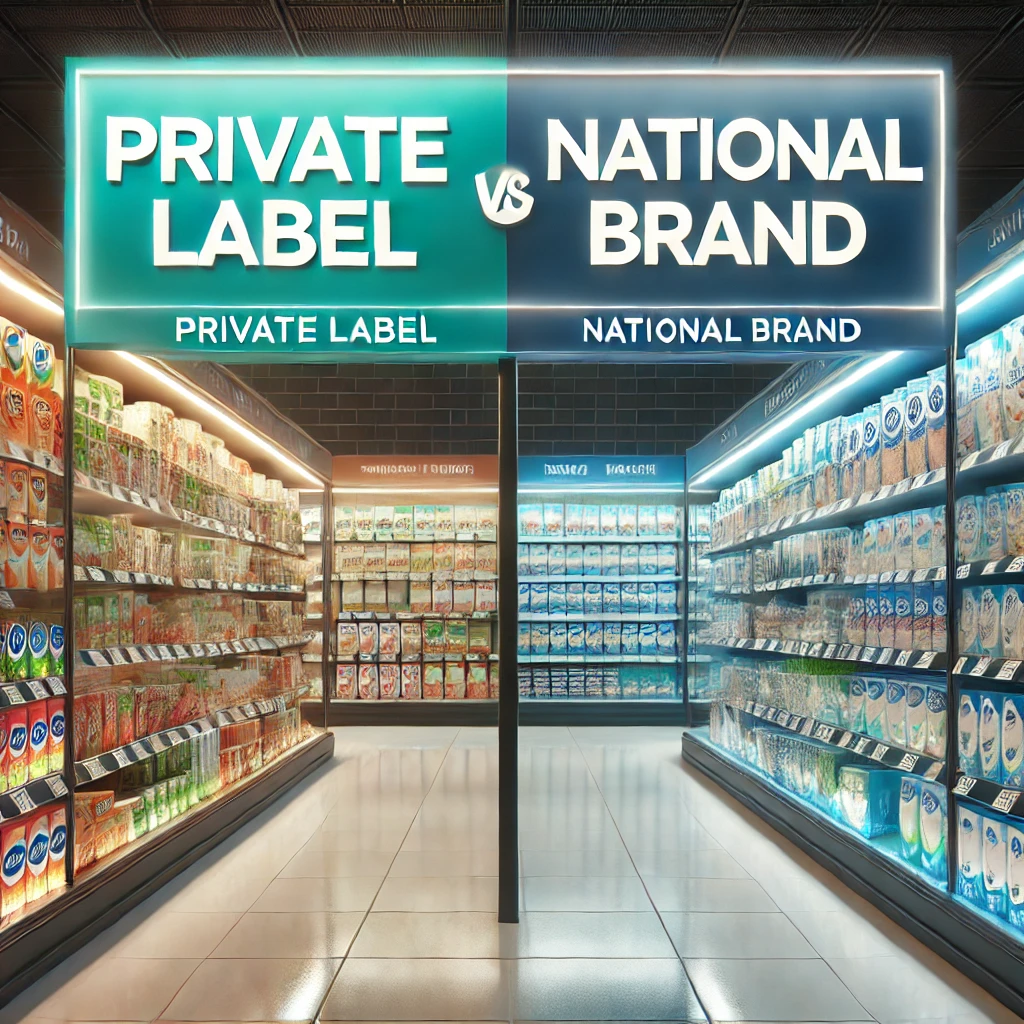Private label products and national brands compete in nearly every aisle of the store. But which offers better quality, value, and overall appeal? While national brands are well-known and trusted by many, private labels are making waves, often offering great quality at a lower price. Let’s break down the differences, pros, and cons of each so you can decide which is worth buying.
What Are Private Labels and National Brands?
Private labels are products made exclusively for a specific store. These brands are owned by the retailer, like Walmart’s Great Value or Target’s Good & Gather. You’ll only find these products at their specific stores. National brands, however, are sold everywhere. Examples include Coca-Cola, Kellogg’s, and Tide.
Why Private Labels Are Gaining Popularity
Private labels have seen growth in recent years, thanks to advancements in quality. Stores have realized that their shoppers want quality that can rival national brands. Because private labels skip the middleman and sell directly through the store, they can also keep prices lower.
Cost Comparison: Private Label vs. National Brands
Price is often a big reason people choose private labels over national brands. In many cases, private label products cost 20-30% less than national brands. Why? They don’t spend as much on advertising and pass those savings on to consumers. National brands, however, invest heavily in marketing and packaging, which often makes them more expensive.
| Comparison | Private Labels | National Brands |
|---|---|---|
| Price | Lower, due to minimal marketing | Higher, includes ad costs |
| Quality | Often comparable to national brands | Consistent and reliable |
| Availability | Limited to the retailer’s stores | Widely available everywhere |
| Customer Loyalty | Growing due to improved quality | Strong, established loyalty |
| Innovation | Less frequent | Regular product updates |
Quality Differences: Is One Better Than the Other?
When it comes to quality, national brands are often considered the benchmark. However, private labels have significantly improved over the years. Some private labels offer almost identical quality to national brands, and many stores source their products from the same manufacturers. In some categories, like dairy or canned goods, private labels often match or even surpass national brands in quality.
Factors That Influence Choice
- Brand Loyalty: Some consumers have grown up with specific national brands and trust their quality.
- Price Sensitivity: Budget-conscious shoppers may lean toward private labels.
- Perceived Quality: National brands are often seen as having consistent quality, even though this perception is changing.
- Innovation: National brands regularly release new products, while private labels are less likely to do so.
Why Choose Private Label?
For cost-conscious shoppers, private labels offer a compelling value. They provide decent quality without the brand-name price tag. In categories like pantry staples, where branding is less important, private labels often excel.
Why Choose National Brands?
National brands provide reliability and familiarity. For products that require specific ingredients or have unique formulations, national brands are often preferred. People who want innovation in new flavors or formulas often turn to national brands for the latest.
The Verdict: Which Is Better?
Both private labels and national brands have their benefits. For those on a budget, private labels often provide great value with decent quality. For brand-loyal shoppers looking for consistency, national brands may still be worth the investment.
In the end, private labels are a great option for saving money on everyday items, while national brands provide innovation and a trusted name. It’s a win-win for shoppers, depending on what you value most.

